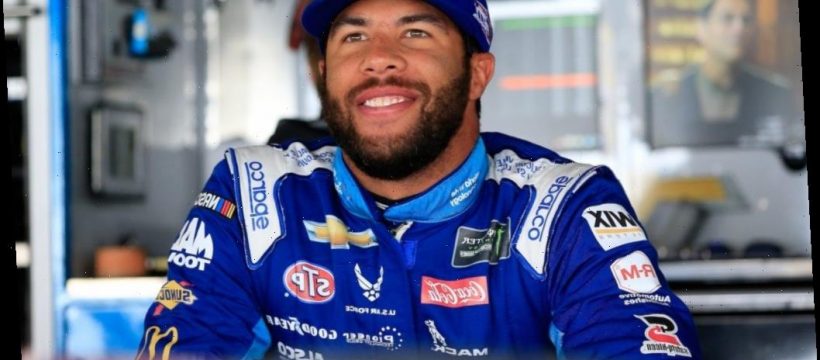Bubba Wallace was never a household name outside of NASCAR before recent events. While people who watched ESPN or followed up on sports elsewhere may have known him as NASCAR’s only Black driver, he rarely made headlines past that. Recently, as racial tensions flare up across the world, Wallace made headlines for a variety of reasons to make NASCAR more inclusive. However, while that spotlight might be growing now, Wallace has always taken pride in his heritage.
Wallace takes the race track
Wallace has been racing cars professionally since he was only 16. Starting in the NASCAR K&N Pro Series, Wallace made waves early, winning two games during his first season and consistently finishing in the top five, according to Racing Reference. As he got older, he began to race everything from trucks to streetcars, making a name as he showed that he could ride with the rest of the bunch.
By 2017, Wallace was ready for the big leagues. He raced four times in the NASCAR Cup series after some success in the Xfinity series. While he wasn’t coming out of the gate and driving to the front of the pack, at just 23 years old, he had made it to a place where so many fail. By 2018, he was a top-30 ranked driver and competed in every race at NASCAR’s highest level, finishing in the top-ten three times and top-five once.
Wallace continued on that pace over the last two years, eeking into the top five one more time in 2019 and finishing in the top-ten twice in 2020. However, his star was never brighter than it recently got, and it had nothing to do with his NASCAR racing.
NASCAR’s troubling roots
RELATED: Is NASCAR Driver Bubba Wallace Married?
While NASCAR is wildly popular in some regions of the country, its diversity has always been in question. Only four Black drivers have raced full-time for the company, and a particular subsection of fans embrace a problematic time in the country’s past. Many racetracks fly the Confederate flag at events, and fans are known to carry them into races. While debates rage on the flag’s meaning among white fans, many Black people are uncomfortable with the flag.
Amidst the recent protests across the country, Wallace, whose mother is Black and father is white, called on NASCAR to take a stance on the Confederate flags and stop embracing a troubling culture for racers. Wallace, who is still just 26 years old and finding his place on the track, faced potential outcry when he took this stance, but he didn’t want to stand by idly. NASCAR obliged him.
“There’s a lot going on, and part of me thinks, ‘Hell, they always told me winning would make the sponsors come,’ and we won a couple times and the sponsors never came,” Wallace told The Boston Herald. “I’m not doing this for sponsorship. I am doing this because it’s what I believe in. If sponsors do come through, then they are showing support and they believe in the message and they line up with the same core values that I have. That’s important.”
The mostly-white audience is yet to embrace Wallace, and with that, sponsorships are bleak. The deaths of George Floyd in Minnesota and Ahmaud Arbery in Atlanta made him think about his more significant impact on the sport. However, he wanted to make his heritage the very essence of his image.
Making a stance
Wallace once again made the news after his stance when a perceivable noose was found in his garage, as reported by CNN. While an investigation found that the noose had been put there in 2019, the reasoning behind its inclusion still stands. Some see it as a simple unfortunately-tied knot, while others wonder why it was his, and only his, garage that had that specific type.
Regardless, Wallace is trying to show that a young Black driver in America has just as much right to be out on the race track. “We are much more than just drivers who drive a race car,” he said (per The Boston Herald). “We are ambassadors. We are leaders of our own brands, and then in life things are thrown at you, you have to stand up for what’s right. That brings on a whole new role. It’s not on the front of the agenda that you see, but if you read the fine print it’s part of becoming an athlete and the pedestal you get with that.”
With a current outpouring of respect from NASCAR and Wallace’s fellow drivers, a future generation of young, Black kids may see what he did and realize that they can be a racer. Like America, NASCAR has a long way to go in terms of diversity, but all it takes is one person to enact a change that could affect future generations.
Source: Read Full Article

